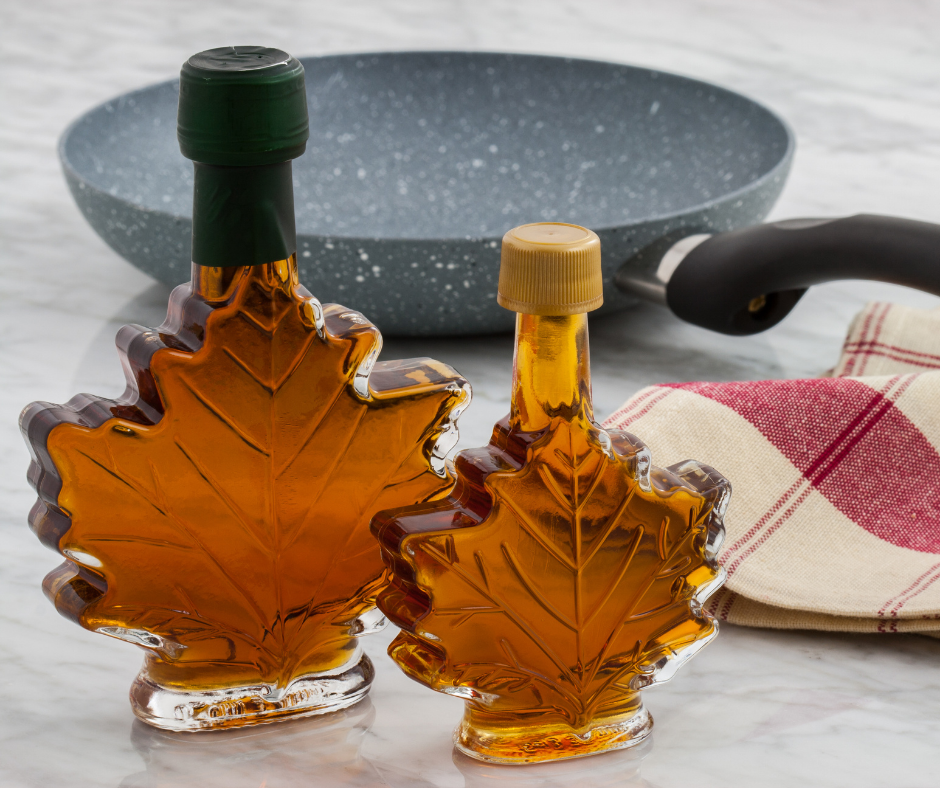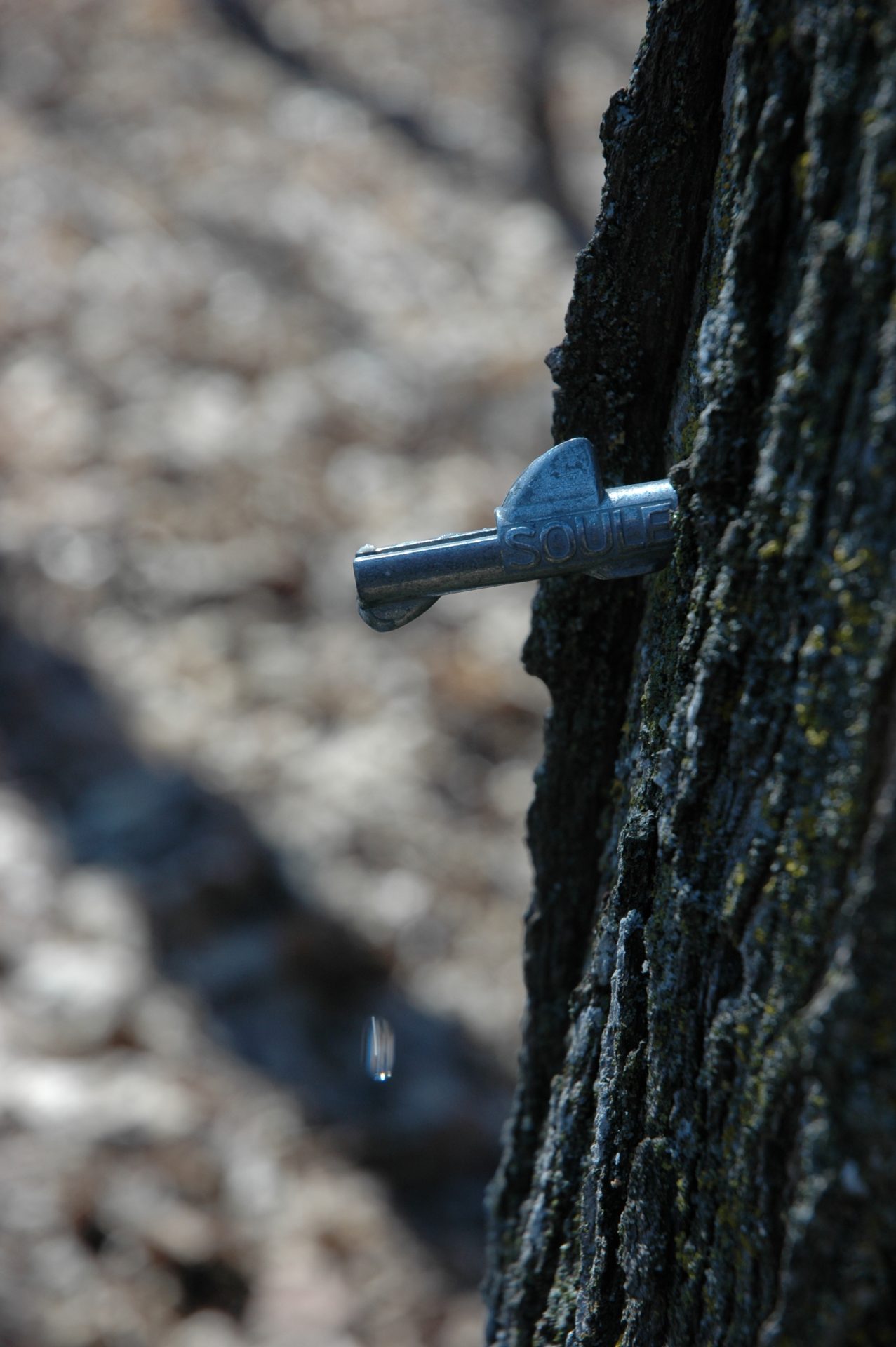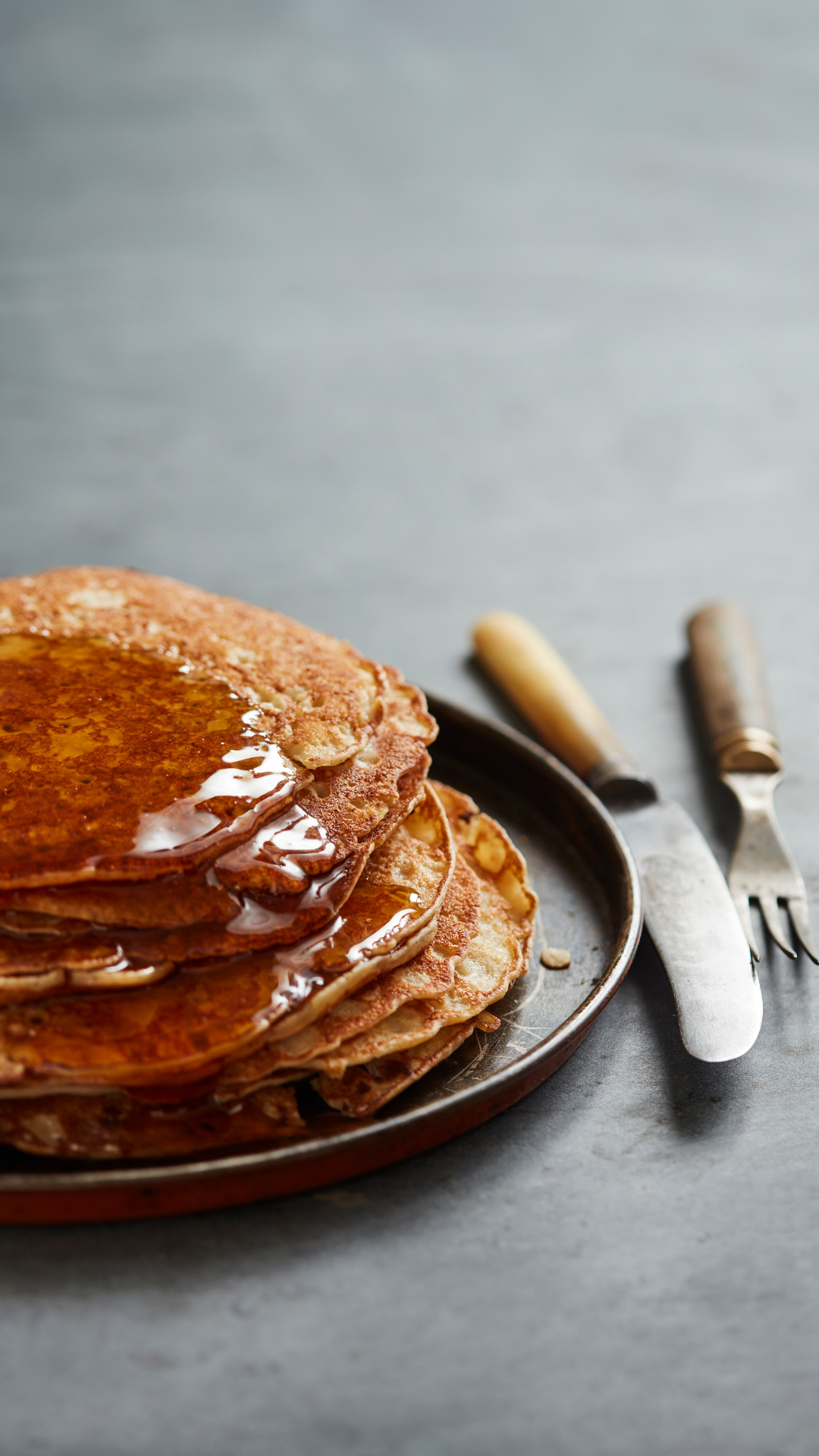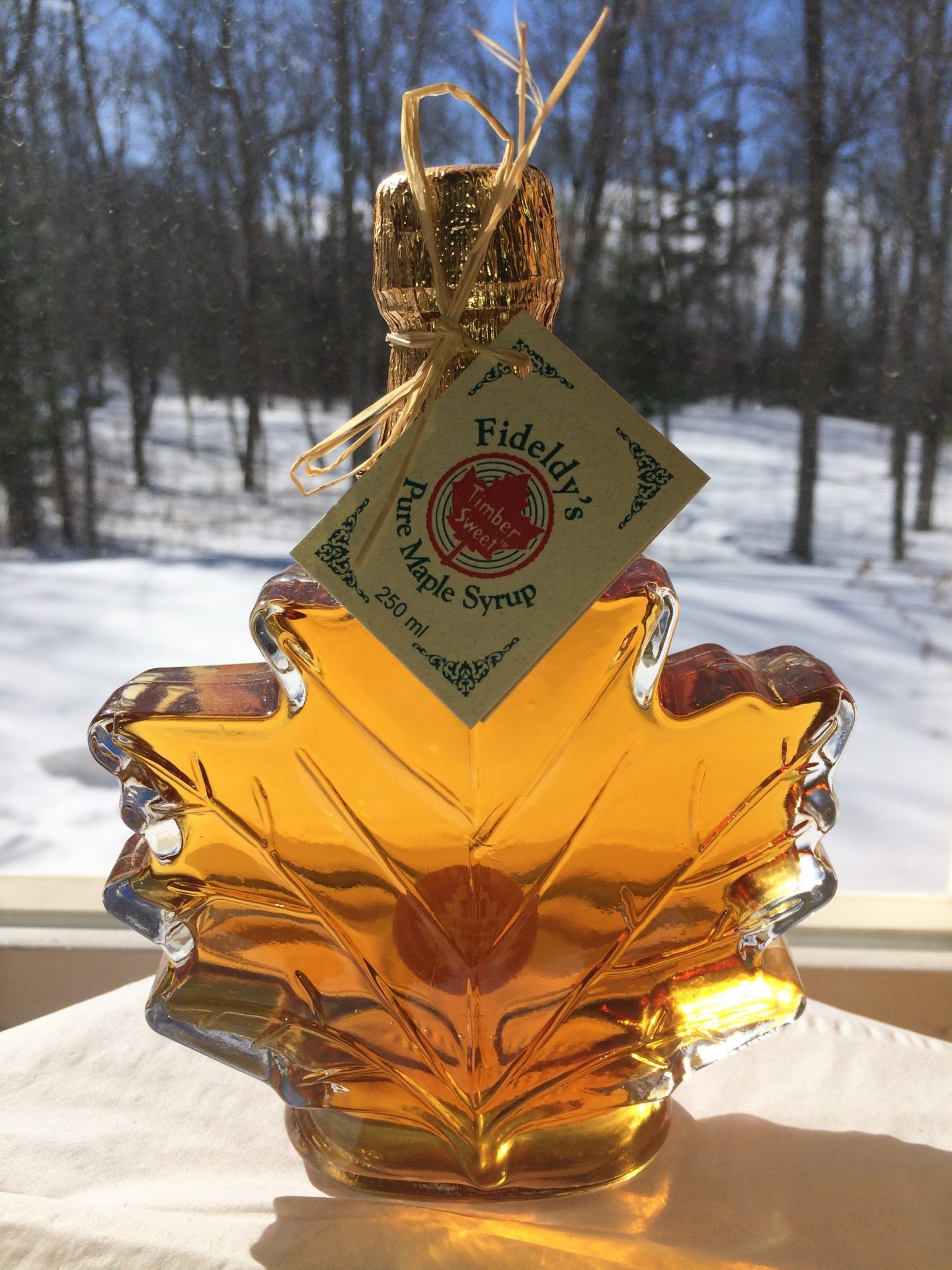
Guest Author: Stephen G. Saupe
March 2nd, 2021
The Minnesota maple syrup season is in full swing. The majority of producers have already drilled holes into their sugar maple trees, inserted a tap (also called a spile) to direct the sap out of the hole, and attached a bucket, bag, or vacuum hose to the spile to catch the sap. Now, it’s mostly a waiting game. Producers are waiting for fluctuating temperatures – above freezing during the daytime, below freezing at night – that trigger sap to drip from the spile. The sap is then gathered and boiled in an evaporator to remove most of the water. What remains is one of Nature’s greatest gifts – 100% pure, delicious, maple syrup. You might be wondering, “What is so great about maple syrup?” Glad you asked. Maple syrup has many virtues.

Maple syrup contains no artificial ingredients.
At the Saint John’s Maple Syrup operation (Collegeville, MN) where I help make syrup, one of our favorite lessons is to ask a student visitor to read the ingredients in a container of maple-flavored pancake syrup. The tongue-twisting list includes high-fructose corn syrup, cellulose gum, caramel color, potassium sorbate, sodium hexametaphosphate, citric acid, and diglycerides. Most students are shocked to learn that there is not a single drop of maple sap in these products. In contrast, the only ingredient in maple syrup is maple sap.
Maple syrup tastes better than maple-flavored pancake syrups.
Though you’re right to think I am biased that maple syrup tastes best; however, I can prove it. Every year our maple operation at Saint John’s hosts one or two annual festivals. A few years ago, as a part of these festivals we conducted blind taste-tests comparing pure maple syrup to a maple-flavored pancake syrup. Out of 653 participants in our tests, the over-whelming majority (72%) preferred pure maple syrup. Anecdotally, many of those who preferred the maple-flavored pancake syrup were children. Try the taste-test yourself. I am confident that you, like our festival participants, will be convinced that maple syrup tastes infinitely better.

Maple syrup is a healthy sweetener.
Compared to other common sweeteners such as high-fructose corn syrup, and white sugar from sugar cane or sugar beets, maple syrup is a healthy choice. Maple syrup has significantly higher amounts of antioxidants (approximately the same as a Gala apple, banana or broccoli), minerals (including manganese, magnesium, zinc, potassium, selenium, calcium), and vitamins (specifically thiamin, riboflavin). Maple syrup is an especially good source of manganese, riboflavin, and zinc. Dr. Navindra Seeram, the leading scientific expert on maple syrup chemistry, recently stated in an interview with the Maple News (January 9, 2021) that maple syrup has nearly 70 bioactive phytochemicals with potential health benefits and that maple syrup delivers a “triple whammy” of macronutrients, micronutrients and phytochemicals.
Maple syrup supports local producers.
When you purchase Minnesota maple syrup you are supporting your neighbors and friends who work countless hours during the spring to produce a delicious natural product. Your dollars go back into the community. In addition, buying local syrup means you are not paying for transportation costs or encouraging the environmental impact of transporting syrup from Quebec, Vermont, and other syrup-producing areas. Before buying, check the bottle and look for a Minnesota Grown or Minnesota Maple Syrup Producers Association (MMSPA) label. This will guarantee that you’re buying local Minnesota maple syrup. The MMSPA is a statewide organization that is a resource for Minnesota syrup producers. If you are interested in learning more about maple syrup or how to get started, visit the website (www.mnmaple.org) and consider becoming a member. Click here to find local maple syrup producers near you.

Photo credit: TimberSweet
Maple syrup is a sustainable crop.
Maple syrup is a perennial crop. Unlike corn and soybean farmers, maple producers don’t have any of the annual costs of planting, spraying, and fertilizing their trees. Sugar maple trees require little maintenance and the same tree can be tapped year after year, so long as the producer avoids drilling near the previous taphole. When you buy Minnesota maple syrup you will have made a wise purchase. Although your decision won’t necessarily reflect one of the seven, classical heavenly virtues, you can rest assured that the many benefits of maple syrup make it a virtuous choice.
About the Author
Stephen G Saupe is a professor in the joint biology department of the College of St. Benedict and Saint John's University and has served as one of the syrupmakers in the Saint John's Maple Syrup operation for two decades.

